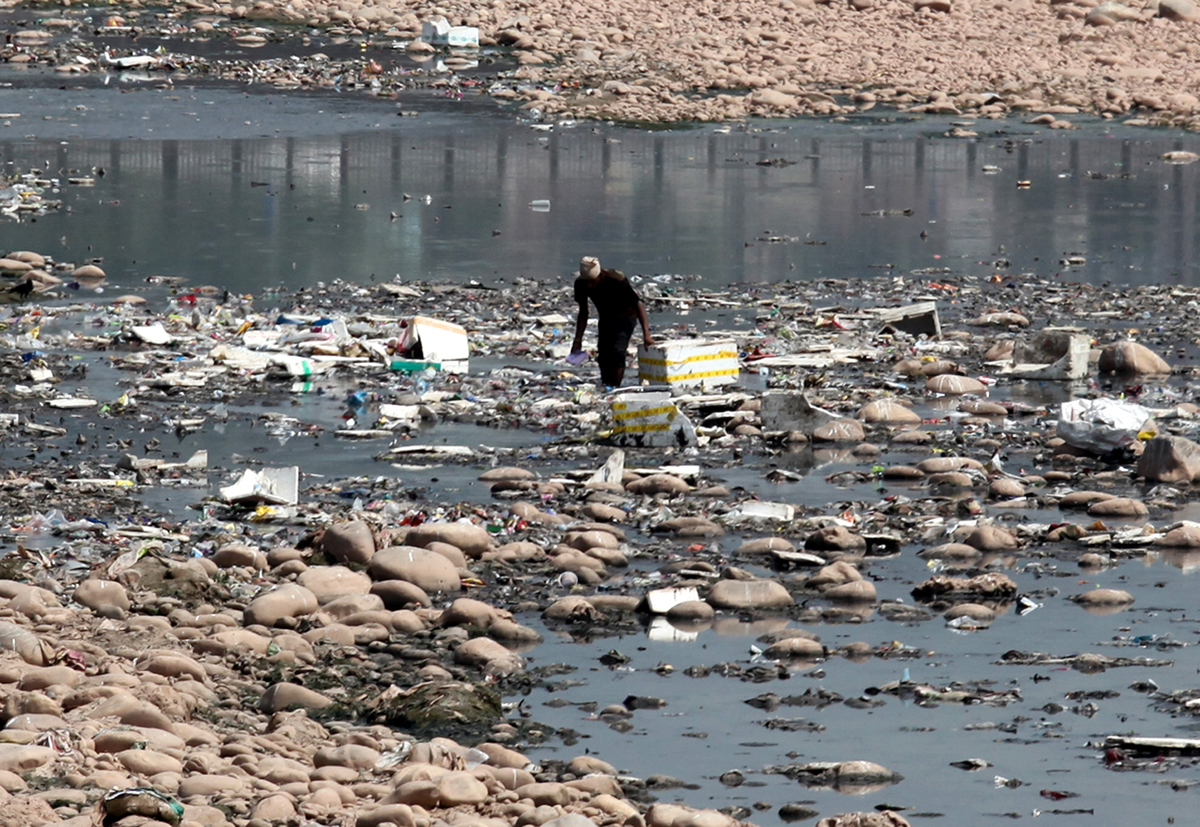Officers panel framed for preparation, execution of action plan
Six out of nine rivers being prioritized for immediate focus
Mohinder Verma
JAMMU, Dec 17: Finally, the Government has felt the necessity of checking pollution of major rivers and streams of Jammu and Kashmir and assigned the task of preparation of action plan within a period of two months to a committee of officers. Moreover, six out of the nine identified water bodies are being prioritized for immediate focus keeping in view the level of their pollution.
The EXCELSIOR in today’s edition had exclusively highlighted that nine major rivers and streams of Jammu and Kashmir namely Devika, Banganga, Tawi, Basanter and Chenab in Jammu province and Chunt Kol, Gawkadal, Jhelum and Sindh in Kashmir province have been found as polluted by an agency of the Union Ministry of Environment, Forest and Climate Change.
It was also reported that despite this startling disclosure by the Central Pollution Control Board the State Government has yet not initiated any step towards abatement of pollution and improving the quality of the water.
This report acted as eye opener for the Government with General Administration Department on the directions of the Chief Secretary BVR Subrahmanyam constituting a committee regarding rejuvenation of polluted stretches of the rivers and streams.
Vide Government Order No.1770 dated December 17, 2018, the Commissioner/ Secretary to the Government General Administration Department Hilal Ahmad has accorded sanction to the constitution of a River Rejuvenation Committee for formulation and execution of action plan in the light of the orders of the National Green Tribunal in Original Application No.673/ 2018 regarding rejuvenation of polluted river stretches.
Administrative Secretary of Forest, Environment and Ecology Department has been made Chairman of the committee while as Director, Environment, Ecology and Remote Sensing, Member Secretary, State Pollution Control Board, Director Industries Jammu and Director Urban Local Bodies Kashmir are its members.
The committee has been directed to prepare action plan within a period of two months for making all the polluted river stretches at least fit for bathing purpose within a period of six months from the date of finalization of the action plan. Moreover, the committee will monitor the execution of the action plan.
“Initially, polluted stretches of six out of nine major rivers and streams will be taken up pollution control measures as was directed by the National Green Tribunal”, official sources told EXCELSIOR. These are Devika (from Guru Ravidas Temple to Nainsu), Tawi (from Suraj Nagar to Belicharana), Basanter (from Samba to Chak Manga Rakwal), Chenab (Jal Patan to Pargwal), Jhelum (from Chattabal Weir to Anantnag) and Sindh (along Duderhama).
According to the sources, the action plan will include components like identification of polluting sources and solid waste management in the catchment areas of the polluted river stretches. Moreover, the action plan will focus on proper interception and diversion of sewage carrying drains to the Sewage Treatment Plants with emphasis on utilization of treated sewage so as to minimize extraction of ground or surface water.
The National Green Tribunal in its order dated September 20, 2018 while expressing serious concern over non-serious approach of the Governments towards continuous pollution of rivers had observed, “checking of pollution in the rivers is integrally linked not only to the availability of clean potable water but also to the protection of environment”.
Stating that Article 48A of the Constitution casts a duty on the State to protect and improve the environment and Article 51A imposes a fundamental duty on every citizen to protect and improve the environment, the National Green Tribunal (NGT) had regretted that inspite of directions in several judgments, discharge of untreated sewage and industrial effluents in rivers and water bodies is continuing at a large scale and sewage treatment capacity is disproportionate to the sewage generated leading to increase in the pollution in the rivers and streams.
Putting the State Pollution Control Boards in the dock, the NGT had further observed, “it is an acknowledged fact that Pollution Control Boards have not been able to take adequate steps for keeping the standards of water within the prescribed limits”, adding “they (Boards) have not been able to stop dumping of wastes, discharge of municipal or industrial effluents in the rivers and water bodies”.


